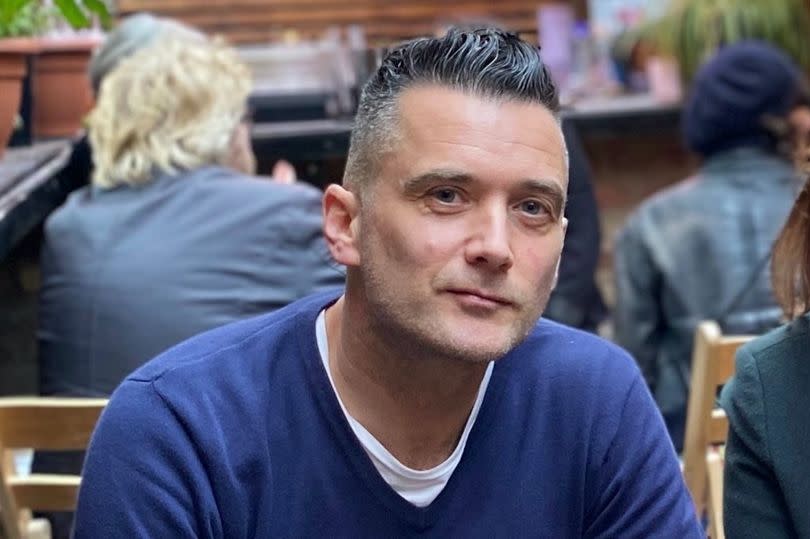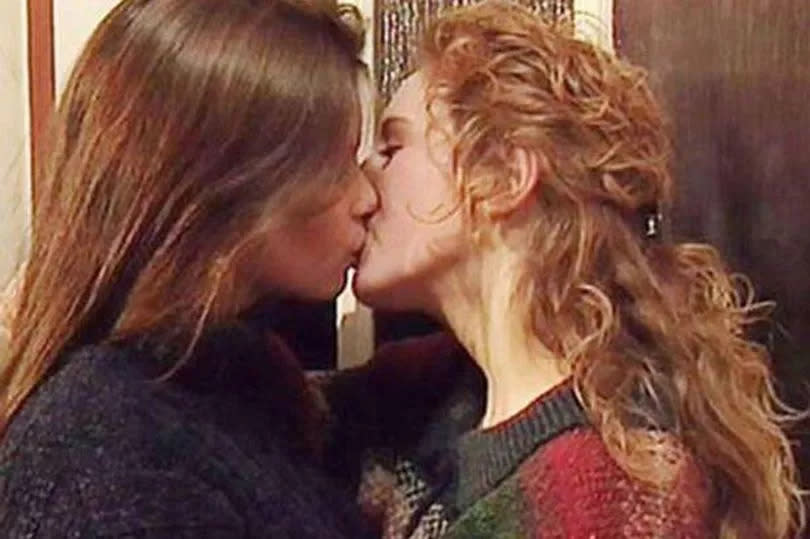The man behind the TV soap moment that changed people's lives

A Brookside writer has claimed that storyline producers were scared to air a first of its kind scene.
The ground-breaking soap opera was filled with over-the-top drama, gun-touting gangsters and death. The Liverpool series never shied away from shocking moments - with Mandy hiding her husband’s body under the patio and the killer plague that brought the neighbourhood close to anarchy both being fondly reminisced over.
However, one particular lesbian storyline between Beth Jordache and Margaret Clemence, written by Norris Green’s Shaun Duggan, moved mountains for LGBTQ+ representation on TV as the plot involved a first of its kind.
READ MORE: Get information on summer events sent straight to your phone
READ MORE: Win £100 shopping voucher to celebrate the return of Aldi’s Next Big Thing
The 53-year-old, who lives in Aigburth now, told the ECHO: “It was impossible to imagine the reaction it would have. 30 years later and people are still not only talking about it but celebrating it.
“The amount of people, over the years, who have said that moment has changed their life has been unreal - they said they didn’t know any gay people and were teenagers in a completely different world with no social media so it was a real lifeline for many.”
Beth, played by Anna Friel, and Margaret, depicted by Nicola Stephenson, shared a kiss and it became the first lesbian kiss to be broadcast before the 9pm watershed on Channel 4.
Beth had been subjected to sexual abuse by her own father from a young age so when the storyline of a romance between two young women was suggested, Anna was adamant that it must be made clear Beth’s sexual orientation wasn’t a reaction to her past.

Anna previously said: “I am proud we took on such controversial storylines and it was new and innovative. I am proud that we got it in the contract that Beth would always stay gay; it wasn’t because of her sexual abuse.”
Off-screen Anna became somewhat of a lesbian pin-up with her fan mail shooting up from 20 letters a week to 100. Around the same time, she added: “Being a gay icon is no different to being a straight icon.
“50% of them (fan mail) were from gay people. Most were supportive and positive about Beth and I had lots of letters from people saying they were confused and that Beth had helped them to come out. So I'm glad I'm doing something to help. Kissing a man is just as hard as kissing a woman.”
Anna, who is not gay herself, was dating actor Darren Day at the time but had to get used to female attention. In one instance, she recalled being at a restaurant when a man approached her with a rose. He said his friend wanted her to have it and when she turned around, she saw the friend was a woman.
It’s hardly surprising Anna was seen as a LGBTQ+ icon given that the kiss was shown to six million viewers. Whereas for Nicola Stephenson, who played Margaret, the relationship was just another in a long line of romances for her character.
Margaret’s first notable relationship was with the Catholic priest, Derek O’Farrell, played by Birkenhead’s Clive Moore. The story prompted both complaints and praise from various religious and casual viewers.
However, undeterred by the controversy, the writers had Margaret go on to befriend and develop feelings for Beth. The pair eventually kissed and in doing so set the standard for other shows to follow.
Shaun, who now runs Baltic Triangle’s club night Sonic Yootha, said: “It was very different times back then. I was also struggling with my sexuality and was only coming to terms with it so everything was very new to me at that time.
“Homophobia was just so normal. Everyone was homophobic, and even if it wasn’t malicious, there was still so much ignorance. It was all just ‘banter’ people would say. It was so difficult to get the storyline through and onto the TV. Producers were very nervous about it, EastEnders had done something similar a few years before but it was never popular with viewers.
“Producers at Brookside were scared to take the risk, they weren’t sure of the backlash and thought people would stop watching the show, but thankfully they did. There was surprisingly barely any bad reaction and I think that was symbolic of how attitudes towards gay people were beginning to change."
The kiss was shown again later to thousands of people when it was included in the opening ceremony of the 2012 Olympic Games in London.
It had screened, without censorship, in 76 countries where same-sex relationships remained illegal meaning the low-definition footage was the first televised lesbian kiss many viewers had ever seen.
£10* unlimited day travel on Northern trains only with your ECHO

 Yahoo News
Yahoo News 
